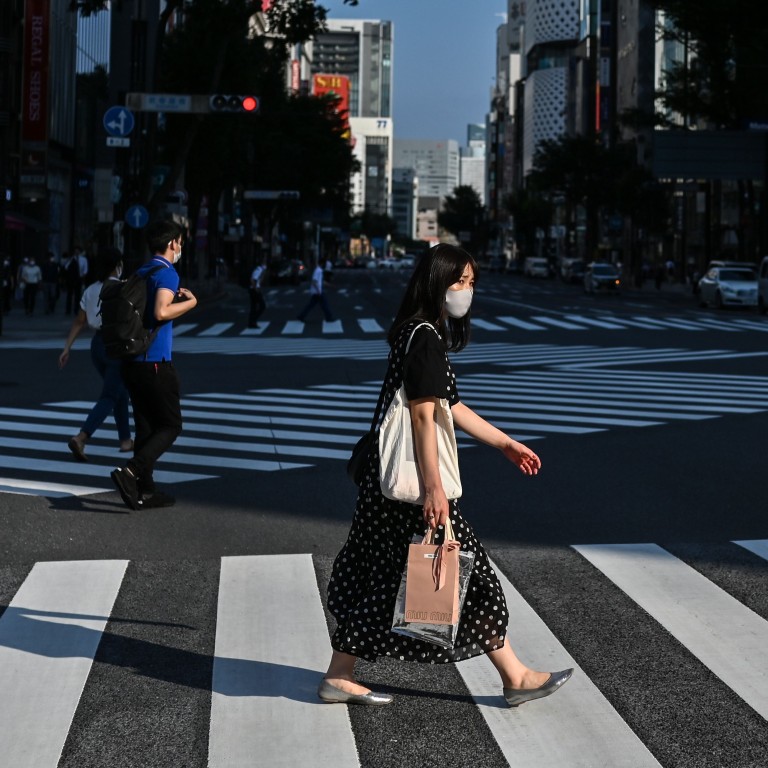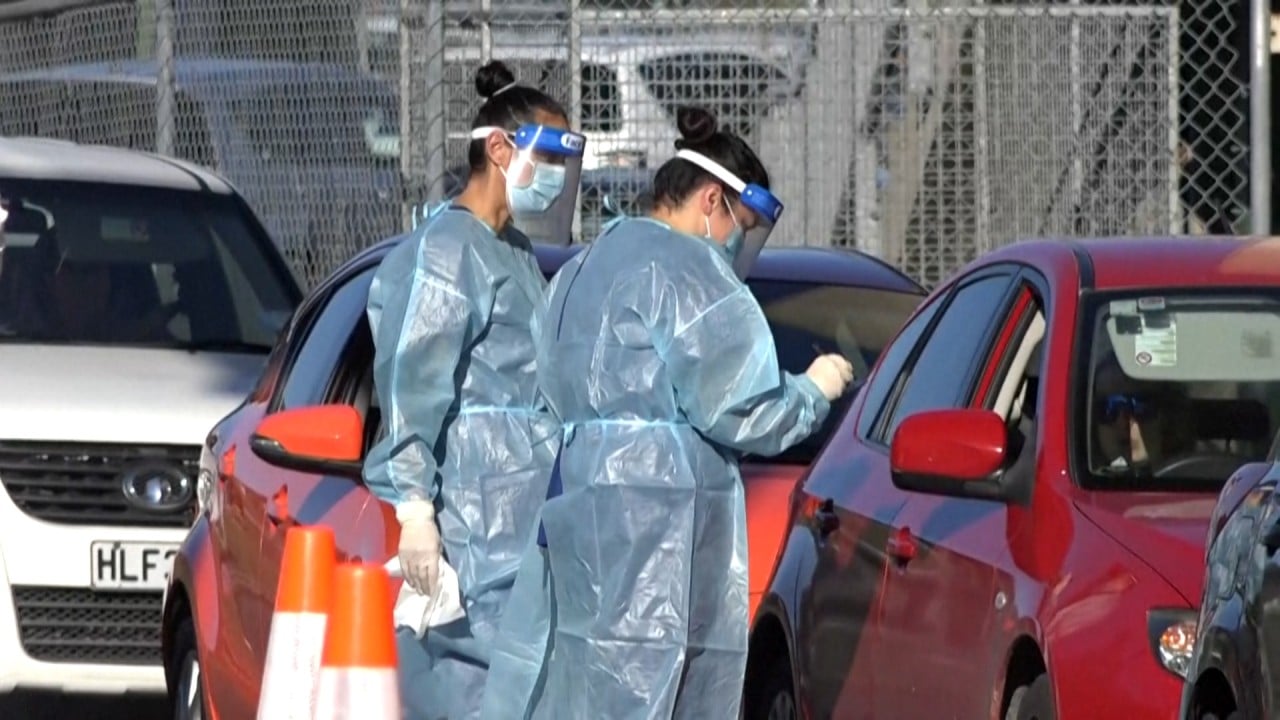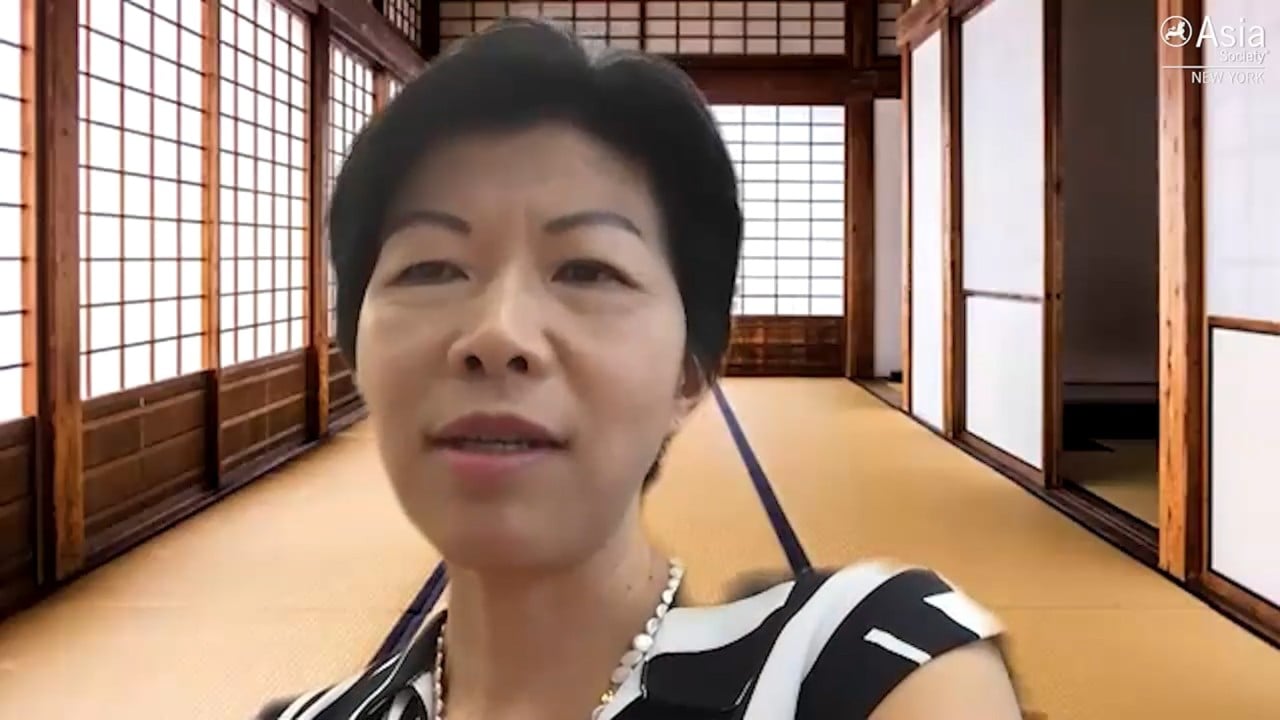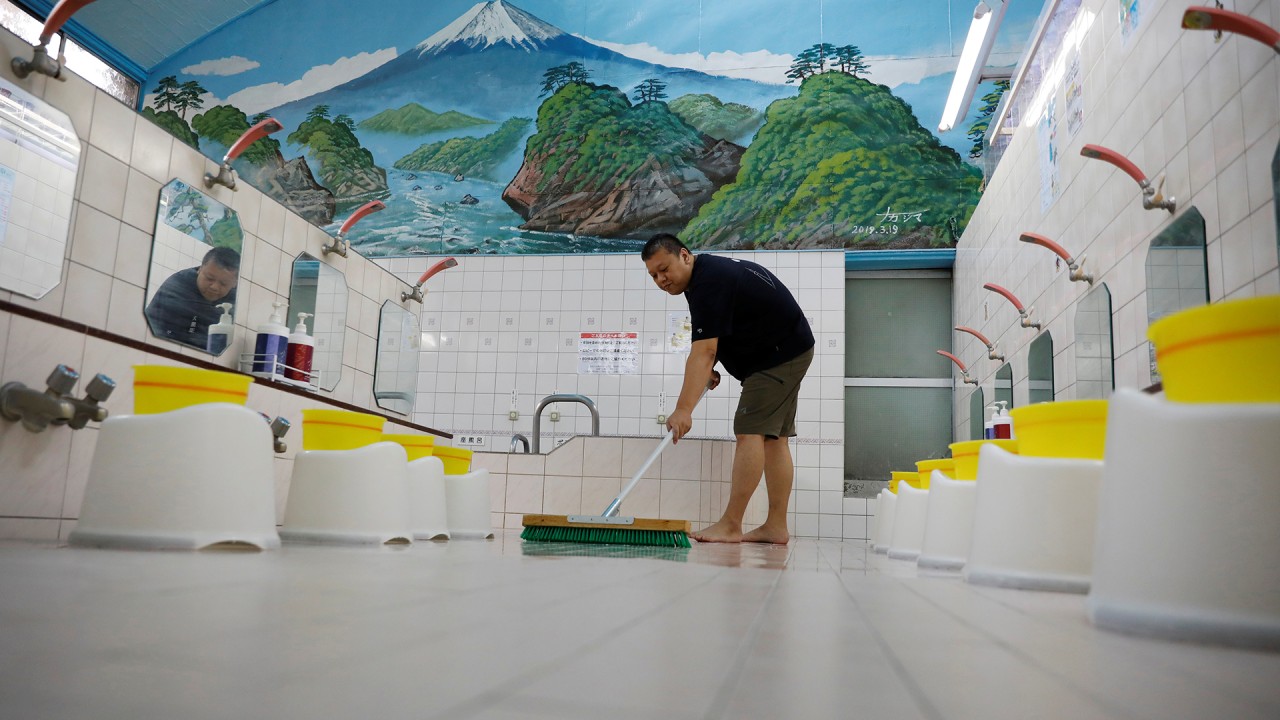
Japan’s suicide rate has fallen in the pandemic and less work and financial stress may be factors, study suggests
- Number of people who took their own lives from February to June was down 13.5 per cent from the average for that time, according to researchers
- They say reduced working hours and government support may have eased pressure and contributed to the decrease
It found that the number of people in Japan who took their own lives from February to June was down 13.5 per cent from the average for that period.
The estimated “number of averted suicide deaths during the pandemic is 1,027 from February to June 2020 [while] the number of direct deaths from Covid-19 is 974”, the team led by Tokyo Metropolitan Institute of Gerontology researcher Shohei Okamoto wrote in a non-peer-reviewed paper posted on medRxiv.org on Wednesday.
Their findings were released a day after the Office for National Statistics said the number of suicides in Britain at the peak of the pandemic was down from 10.3 per 100,000 people to 6.9 per 100,000.

02:07
Global coronavirus cases surpass 25 million as India deals with world’s fastest-growing outbreak
Some places have seen an increase in suicides during the pandemic – for example, the number has more than doubled over the last three months on the Pacific island of Guam from the same period a year ago, according to the medical examiner’s office.
Meanwhile, there has reportedly been a jump in calls to suicide hotlines in the country worst-hit by the pandemic, the United States, as well as in Canada.
But Okamoto noted that people having suicidal thoughts did not always take their own lives, and that there could be statistical bias in a simple comparison of suicide rates from before and during the crisis – such as for the case of Guam – since there could be other factors at play.

36:49
Kathy Matsui on women in the Japanese workplace
For the Japanese study, the researchers looked at data on suicide deaths going back four years from across the country of more than 120 million people. They said the study provided “the first large-scale evidence” on the pandemic in relation to the suicide rate.
The decline in suicide deaths was most obvious among men aged between 20 and 69, who constitute most of the workforce, according to the researchers. The rate fell 12 per cent from February to June from the average for that time.
The study also found the rate dropped overall when Japan was under a state of emergency and when schools were closed.
But there was less of a change in the female suicide rate – it fell by about 7 per cent from the average – which the researchers said could be to do with women being more likely to lose their jobs, taking on more household tasks, and an increase in domestic violence during the pandemic.
Japan has the fifth highest suicide rate among developed nations, and it also has the world’s highest life expectancy of more than 84 years. Previous studies have found that stress caused by overwork and isolation were among the risk factors for suicide in the country.

02:03
Public bath houses in Japan struggle to survive during Covid-19 pandemic
But according to the study, the pandemic has reduced working hours in Japan by 10 to 20 per cent. In addition, every citizen has received a payment of 100,000 yen (about US$940), companies have received subsidies and there was a 50 per cent drop in the number of bankruptcies filed in May compared to “the pre-pandemic period”. The researchers said all of this could have contributed to the decrease in the suicide rate by reducing stress and financial pressure.
Why giving is good – for you and the people you help
However, Okamoto told the South China Morning Post that “we could not say the pandemic has saved more lives than it [took]”, and that the study was not broad enough to make such a conclusion.
The paper also noted that Japan’s situation was not the same as other countries where strict lockdowns, social unrest, economic problems and hunger were taking a huge toll on mental health.
The researchers also warned that after natural disasters such as Hurricane Katrina, which struck the US Gulf Coast in 2005, suicide rates fell, but then they rose. They said this could also happen during the pandemic as positive factors like the government financial support came to an end.
If you are having suicidal thoughts, or you know someone who is, help is available. For Hong Kong, dial +852 2896 0000 for The Samaritans or +852 2382 0000 for Suicide Prevention Services. In the US, call The National Suicide Prevention Lifeline on +1 800 273 8255. For a list of other nations’ helplines, see this page

